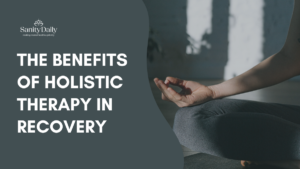Anxiety is a cause of a lot of things, including traumatic triggers, re-living stressful events, overthinking about negative outcomes. It is possible to have anxiety if you are worrying too much about a situation or more. Suppressing your own needs and healing healthily to please people can cause anxiety. There are different types of anxiety that are induced in different situations. However, your reaction to anxiety corresponds to the deep-rooted fight-flight-freeze stress response in the human psyche.
Individuals suffering from anxiety disorders usually experience severe, excessive, and chronic stress and fear about everyday events. Often, anxiety disorders are characterized by recurring episodes of acute dread, panic, or despair that peak within moments.
These anxiety and panic attacks interrupt daily activities, are difficult to regulate, are out of touch with reality, and can linger for an extended period of time. You can avoid certain locations or situations in order to avoid unpleasant feelings. Symptoms may begin in childhood or adolescence and persist throughout maturity. Anxiety is a result of diverse experiences, thoughts, and dreams that cause worry. This could explain why you have recurring dreams of seeing a dead person.
Knowing Anxiety Disorders
According to evolutionary psychology, the ability for anxiety is a determined species-wide adaptation that serves to alert and protect humans against a range of natural risks. Anxiety, in particular, serves to alert us to dangers to our biological potential. Thus, anxiety alarms sound strong not only in the face of imminent danger to life or limb, but also in the face of adversity to our possessions, position, reputation, or expertise. Anxiety serves as an excellent warning system about the numerous risks of loss.
Generalized Anxiety Disorder (GAD)
GAD is characterized by excessive anxiety that occurs for no apparent reason. GAD is determined when an individual has excessive worry over a variety of things for six months or longer. If you have a mild case, you should be able to carry on with your typical daily activities. Severe cases may have a significant effect on your life.
Social Anxiety Disorder
This illness is characterized by an overwhelming fear of public situations and the possibility of being evaluated or embarrassed by others. This extreme social phobia can cause an individual to feel humiliated and isolated.
Post Traumatic Stress Disorder (PTSD)
PTSD occurs as a result of observing or suffering a stressful event. Symptoms may manifest immediately or may take years to manifest. Warfare, natural calamities, or violent assaults are all common causes. PTSD episodes can occur suddenly and without notice.
Obsessive-compulsive disorder (OCD)
Individuals with OCD may feel frustrated by the desire to repeat specific rituals (compulsions) or by intrusive and unwelcome thoughts, which can be upsetting. Impulses that are frequently encountered include compulsive hand-washing, counting, and analyzing something over and over again. Obsessions with cleanliness, violent tendencies, and a demand for perfection are all common. Trying to understand your patterns and why you feel the way you do may help your concerns.
Phobias
Phobia includes claustrophobia (fear of enclosed areas), acrophobia (fear of heights), and numerous others. You may be overcome with a strong desire to avoid the frightening object or circumstance. Instead of being scared, grieving in a healthy way with either therapy to understand why you are confused and lost may help you better.
Anxiety disorder
This leads to panic episodes and irrational sensations of fear, worry, or impending doom. Irregular heartbeats, difficulty breathing, freeze response are all physical signs. These attacks are unpredictable and can happen at any time. Having a response ready for such moments can help you cope with the episodes.
6 Ways To Deal With Anxiety Naturally
There are numerous ways to deal with mild forms of anxiety by yourself. It is important to understand that anxiety, like any other illness or injury, should be given attention to. It is important to build healthy coping mechanisms.
Maintain a Routine
Relax a bit. Yoga, music, meditation, a massage, or relaxation techniques can all help you unwind. Taking a step back from a problem can help you get some perspective.
Maintain a healthy diet. Don’t miss meals at any time. Always have a supply of healthy, energizing snacks on hand.
Healthy Habits
Caffeine and alcohol can exacerbate anxiety and even cause panic attacks, so keep them to a minimum. Make sure you’re getting enough shut-eye. When you’re under a lot of stress, your body craves extra sleep and relaxation.
Regular Exercise
Regular physical activity can improve your mood and keep your health in check. Here are some helpful hints for staying fit. Breathe slowly and deeply. Slowly inhale and exhale your lungs full of air. Slowly count to ten. Count to 20 if you have to, and then repeat. Give it your all. Make a point of being proud of your progress rather than striving for perfection, which is impossible.
Recognize the feeling of loss
Recognize that nothing is beyond your power. Take a step back and ask yourself, “Is this really so bad?” Humor is always welcome. A hearty laugh may do wonders. Maintaining an optimistic outlook will help you succeed. Instead of dwelling on the bad things in life that make you feel numb (like a break-up), try to see the good.
Engage in Enriching activities
Engage yourself with something. Volunteering or participating in community activities might help you build a support system and take a break from the stresses of daily life.
Find out what makes you anxious so you can avoid it in the future. It may be anything you can think of: work, family, school, etc. When you’re feeling worried or agitated, record your thoughts in a journal and look for a trend. Make a phone call. Friends and family members can be a great source of support if you’re feeling overwhelmed. Seek expert guidance from a doctor or therapist.








